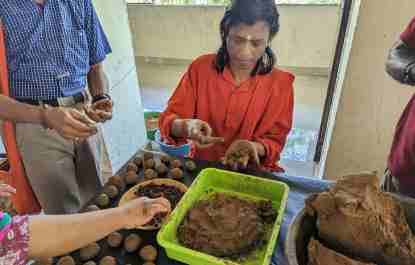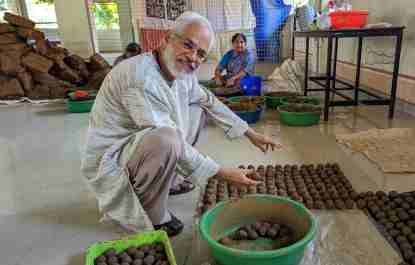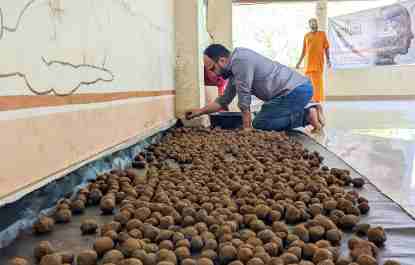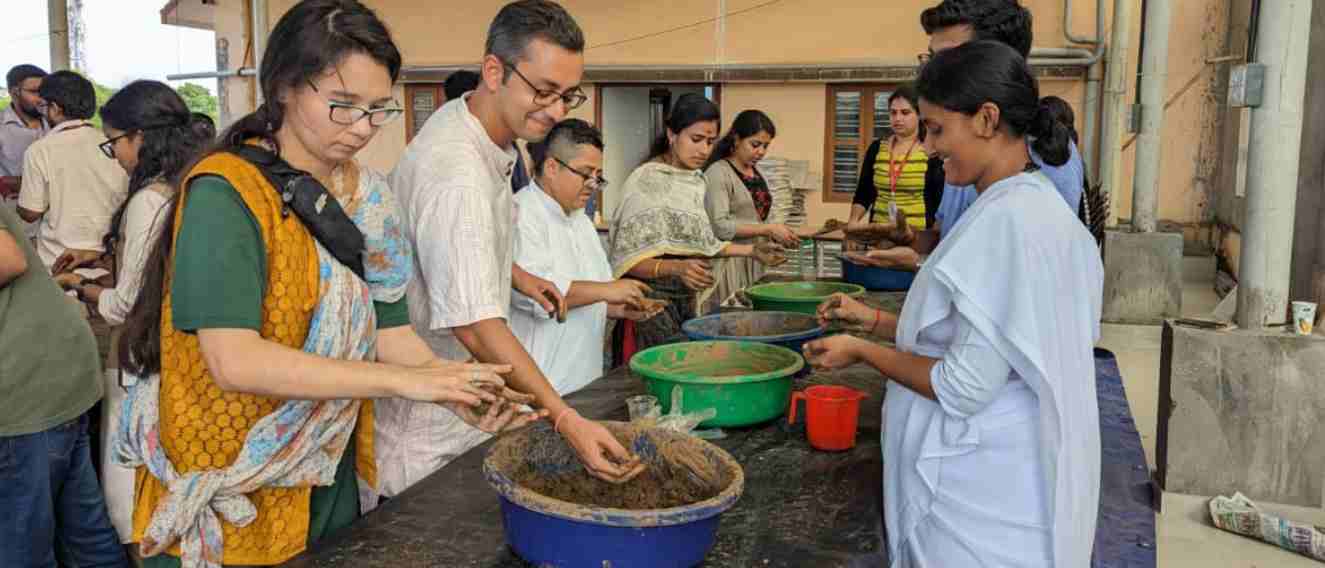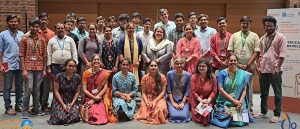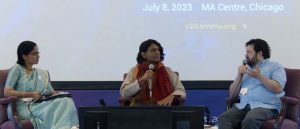The making and distribution of seedballs is an ancient technique that offers a simple solution for community groups to come together and contribute to restoring our planet’s ecological balance.
Civil 20’s Sustainable and Resilient Communities (SRC) working group has launched Global Seedball Campaign: Seeds of Hope—an initiative with the goal of dispersing one million seedballs in fragile ecosystems worldwide. Under the guidance and vision of Amma as Chair of C20 for India’s G20 Presidency, SRC is deeply honoured to work towards leading the production and distribution of the seedballs in the year 2023.
The project is in collaboration with AYUDH, the Mata Amritanandamayi Math’s global youth wing, and is a humble effort to create general awareness in people about the significance of seedballs in restoring ecological balance. Volunteers are set to gather in centres of the Mata Amritanandamayi Math across India and in Asia, Europe, South America, North America, Australia, and Africa as part of efforts to encourage people to contribute in whatever way possible.
“Take at least 100 seeds. Take a bit of soil, cow dung, or compost in a paper to insert the seed into it and tie it up. This when thrown into the forests, will start to germinate and grow. Trees in the forest do not usually need any water or fertilisers, their own fallen leaves become fertilisers to such trees,” said Amma.
“Alignment with nature is the lasting and closest bond for the human body and life. Without the elemental forces of earth, fire, water, air and space, humankind and other creatures will cease to exist. Our essential consciousness is the totality of all these forces. As long as we do not acknowledge this eternal unity between humankind and these natural forces, peace, happiness, and harmony will remain a dream.”
A seedball is made up of soil and seeds, often mixed with clay and other organic materials to hold the ball together. They are designed to be thrown or scattered in areas where vegetation is required and are able to rely on natural rainfall to germinate and grow into mature plants.
Creating seedballs is an ancient technique used for reforestation and soil restoration that is today being carried out by community groups worldwide and includes people of all ages. It offers an environmentally friendly and low-cost solution with the potential to make a significant impact on the health and resilience of our planet’s ecosystems.
In preparation for the launch of the campaign, SRC conducted intensive seedball making workshops at Amrita Vishwa Vidyapeetham, Amritapuri Campus and the Amritapuri Ashram. The students, staff and ashram residents have joined hands to produce close to one lakh seedballs. A workshop conducted at the university on April 5th had over 200 enthusiastic participants who made close to 10,200 seedballs in seven hours. Meanwhile in Amritapuri, the Ashram kids made close to 1700 seedballs in two hours.
Inaugurating further workshops at the Ashram on April 7th, Swami Jnanamritananda Puri said: “The seeds of a tree are its children, yet, of the many seeds from a tree, only a few see a new life. The remaining seeds in fruit are used as food by humans and animals. When we look at nature and all of creation, we see that it’s only humans that keep on taking without giving anything back to the environment. This has greatly affected the delicate balance of the ecosystem, causing climate change and extreme weather conditions.”
Every year, humans destroy around 10 million hectares of forests, causing huge ecological imbalance that affects earth’s climate and biodiversity. Deforestation has a profound impact on humankind, wildlife, and other life forms in nature. As forests are cut down to make way for mining and urbanisation, countless species lose their habitats and struggle to survive.
The loss of habitat has led to the decline and even extinction of many plant and animal species. Destruction of trees also leads to carbon retainment in the atmosphere, contributing to climate change and extreme cases of natural disasters. As deforestation continues, urgent action is needed to protect the planet’s biodiversity and ensure the survival and wellbeing of countless species on earth. It is now time to break this pattern.
